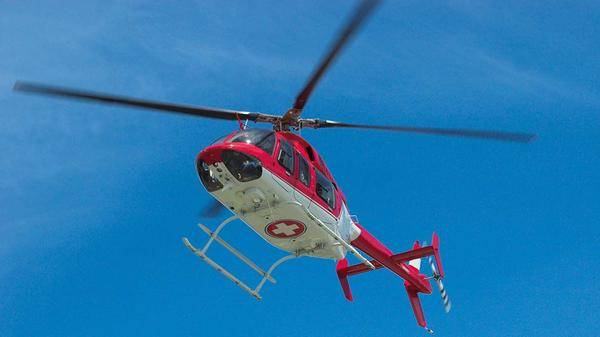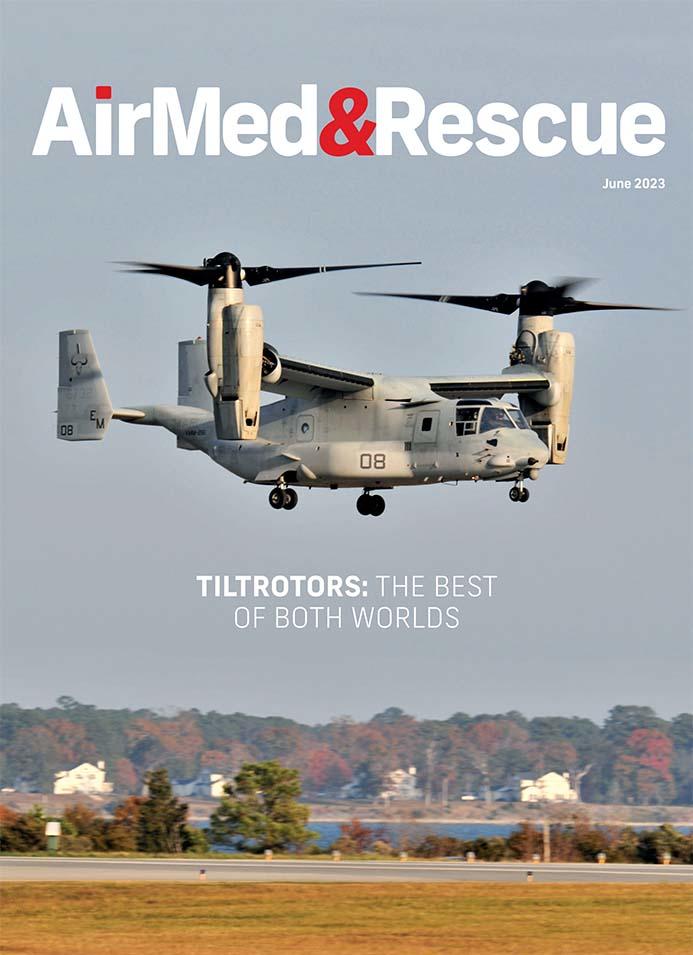Industry voice: Continuing your critical care transport training

Accreditation and continuing education are important for maintaining skills and the latest knowledge of flight nurses. Kelley Holdren, President of ASTNA, explains
The Air and Surface Transport Nurse Association (ASTNA) is a nonprofit member organization whose mission is to advance the practice of transport nursing and enhance the quality of patient care through commitment to safety and education. Those who participate in critical care transport have an awesome responsibility to those they care for. Faced with a wide array of disease and injury, the transport professional is responsible for maintaining current, best-practice standards so that they deliver the best possible care to their patients. ASTNA believes that its core values of professional development, quality outcomes and safety culture, to name a few, stress this importance of ongoing education and specialty certification within the profession.
Continuing education
ASTNA prides itself in its ability to offer quality continuing education. The organization recognizes that critical care transport professionals are often sole providers with their partners during transport, and often do so with limited resources and capability. That is why continuing education is so important to make sure that healthcare skills are practiced and well honed, and that knowledge is current. One of the most taken classes is the Transport Professional Advanced Trauma Course (TPATC). This course helps many transport professionals across the country meet their trauma education and certification requirements, recognized by the Commission on Accreditation of Medical Transport Systems (CAMTS). The course outlines care of the trauma patient during initial resuscitation and transport, with emphasis on the importance of early recognition of high-risk trauma patients, and management of priorities in care of the multiple trauma victim.

Importance of specialty certification such as Certified Flight Registered Nurse (CFRN) and Certified Transport Registered Nurse (CTRN) cannot be stressed enough. These specialty board certifications are professionally recognized and give individuals the validation of specialty knowledge and expertise while empowering nurses to impact patient care, outcomes and safety. Maintaining these certifications ensure ongoing competency of the transport nurse.
Advanced certification provides flight nurses with additional knowledge and skills that enable them to handle critical patient conditions with greater competence and confidence. This additional training includes advanced airway management, trauma care, critical care, and other emergency medical services.
Flight nurses who have undergone advanced certification have a better understanding of the physiological and psychological needs of their patients. This allows them to provide more personalized care, reducing the risk of complications and improving patient outcomes.
Advanced certification in flight nursing enhances a nurse’s professional development, knowledge and expertise. It is also recognized as a mark of excellence in the field of nursing, highlighting their commitment to providing the highest standards of care.
Benefits of advanced certification
Advanced certification can lead to better job opportunities and higher salaries. Many hospitals and healthcare organizations prioritize hiring nurses who have advanced certifications, particularly in specialized areas like flight nursing.
Continued education and specialty certification is of great importance to critical care transport field. ASTNA ensures that it provides continuing education to its members that is current and best practice. Given the multitude and variety of critical patients that are cared for, it’s easy to see why continued education and honing of skills is so important, and why specialty certification sets individuals apart as a show of excellence.

June 2023
Issue
We find out about attracting the best staff; what is being done to improve sustainability; how tiltrotors compare with conventional aircraft; how rescue services approach sudden and extreme flooding; and the challenges facing MRO supply chains; plus all of our regular content.
Kelley Holdren
Kelley Holdren started her career as a nurse in 1998 at the University of Chicago. Since then, she has gained experience in various adult ICUs and the pediatric ICU to obtain experience for her dream job of becoming a UCAN flight nurse. That dream came to fruition in 2004, and in 2012, Kelley moved from a staff flight nurse position to the Administrative Director/Chief Flight Nurse position. Although she is responsible for the day-to-day operations of University of Chicago Aeromedical Network (UCAN), Kelley continues to fly as an active flight crew member. Kelley will often represent UCAN in the community and across the nation by teaching and speaking at local, regional and international air medical conferences.
Kelley became involved in her national professional organization, the Air and Surface Transport Nurse Association (ASTNA) in 2016. Throughout her seven years on the ASTNA board of directors, Kelley has served a few different positions such as Director at Large, Secretary / Treasurer, President-Elect and, currently, President.